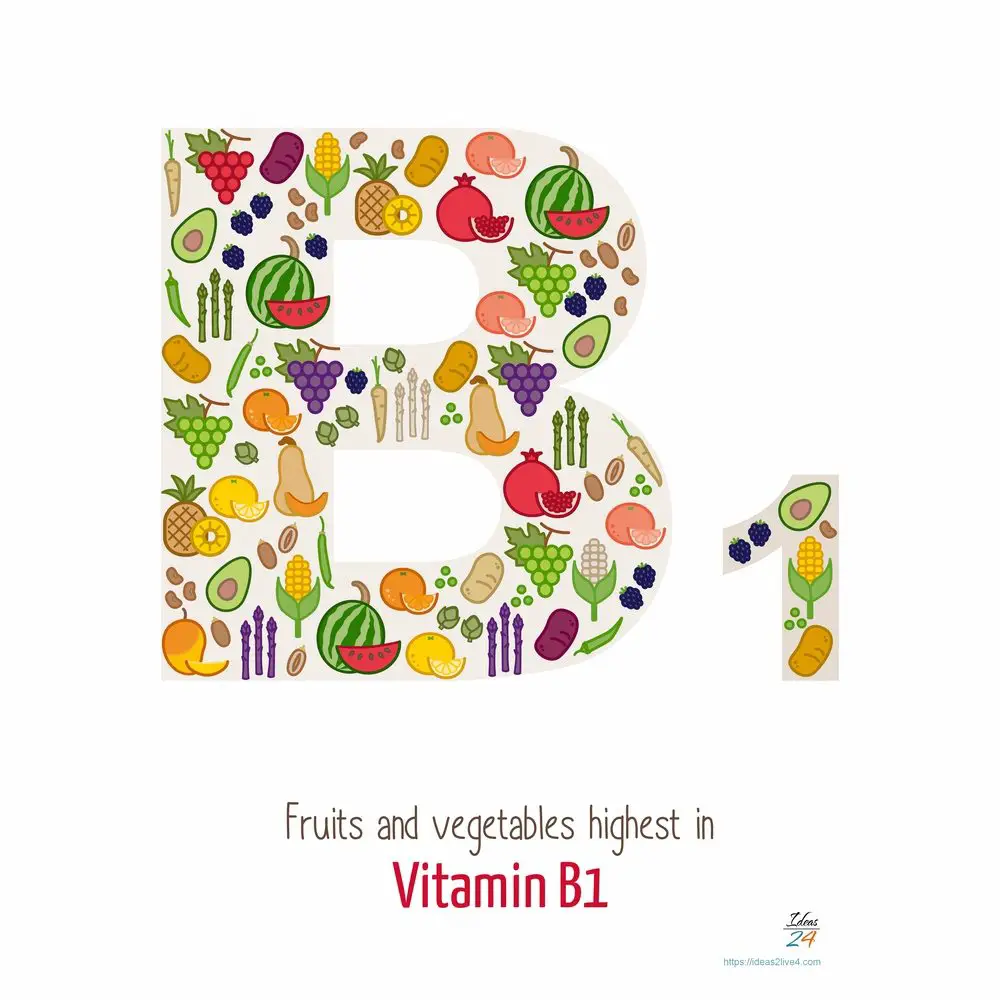Vitamin B1 is also known as thiamin/thiamine. It’s a vitamin essential for the metabolism to work effectively. This isn’t one that you want to overlook in your diet. Here’s a look at just why vitamin B1 is so important.
The Basics of Vitamin B1
Most people will see this vitamin written as thiamine. It’s a water-soluble vitamin, just like all other B vitamins. It also works with the other B vitamins to support the metabolism. All help to keep the whole body, including the skin, eyes, and hair, healthy. Some of them support the nervous system, improving and supporting the brain function.

Vitamin B1 specifically helps to prevent any nervous system complications, along with complications in other parts of the body. It’s an anti-stress vitamin, making sure the body works effectively when the stress levels increase. Thiamine improves the electrolyte flow throughout the nerve cells and muscles.
It’s possible to get the vitamin through whole grains, some meats, pulses, nuts, fruits, and vegetables. Oranges, potatoes, eggs, kale, and liver tend to be the best sources, but it is also possible to gain the vitamin through breakfast cereals, brown rice, and whole wheat pasta, especially if they have been enriched with the vitamin.
However, the cooking process can destroy the vitamin. It dissolves into the water during cooking, so you want to avoid boiling anything.
Why You Need More Thiamine
Those with a vitamin B1 deficiency are more likely to develop anorexia or struggle with gaining and maintaining weight. Many patients develop mental health issues and cognitive problems. The nervous system can’t work effectively and the right messages are passed around the body. Alcoholics have also found to have a deficiency. This becomes a cycle, as alcohol can prevent the body absorbing the vitamin from sources.
The vitamin is also essential for the metabolism. It helps the body absorb the carbohydrates to turn them into glucose for use. A lack of vitamin B1 will lead to energy slumps, sugar cravings, and other issues.
Muscle weakness is common in patients with a deficiency. The metabolism also finds it hard to absorb and use protein, which is required for strong and toned muscles.
Studies show positive results from using the vitamin for treating some conditions. Alzheimer’s patients have found the disease is prevented from progressing, although more studies are needed to learn the effectiveness and full results. Kidney disease can also be prevented in patients with diabetes. Another study has shown that the chance of developing cataracts can be reduced through the addition of the vitamin.
The overall immune system is supported with a healthy amount of vitamin B1. This is linked to the digestive health being supported. Around 80% of the immune system lives in the digestive system, so a healthy gut is essential for a healthy body. Thiamine helps to produce enough hydrochloric acid within the stomach, ensuring food is fully digested. This then helps to ensure the body absorbs all nutrients from food.
Taking Too Much Vitamin B1
While it is possible to consume too much vitamin B1, there are very few cases where adverse affects have been noted. However, taking too much still isn’t necessarily a good thing. There are no reports that show taking more than the recommended daily amount will improve the health extra. An average adult needs 1.1-1.2mg of the vitamin.
Are you getting enough vitamin B1 in your diet?
Foods that are especially high in vitamin B1 include:
- beef
- liver
- dried milk
- nuts
- oats
- oranges
- pork
- eggs
- seeds
- legumes
- peas
- yeast
Some foods such as bread, pasta and breakfast cereals are often ‘fortified’ with additional vitamin B1.
You can download and print a large format version of our Vitamin B1 graphic here…
Ready to move on to our post on vitamin B2?





